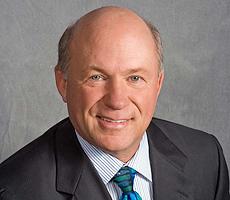The great chicken-sandwich controversy has come and gone, leaving a moral lesson as consequential and lasting as the clucking in a hen house. The clucking was media-made — loud, fierce and angry.
And then it was gone. The result, such as it was, was not quite what the media had in mind.
The good guys and the bad guys looked well-cast: doe-eyed innocents, eager to kiss, shout and fondle in pursuit of the love that shouts its name, against evil church folk determined to deprive gay brides of their rightful ration of peau de soie and gay husbands of their rightful perch atop a wedding cake.

The controversy was presented as the latest offensive against same-sex marriage, which most Americans regard as not quite marriage at all, led by a corporation determined to compel everyone to “eat mor chikin,” and wolf it down before the cows come home. The villainy was compounded by the outrage that the corporation was owned by born-again Christians.
Dan Cathy, a devout and successful Baptist businessman, openly talks of his faith and operates on a business model based on Christ’s Sermon on the Mount, as recorded in Matthew 5:41: “And whosoever shall compel thee to go a mile, go with him twain.” Two miles is more generous than one.
Quoting from the Bible was villainy compounded for liberals gagging on their celebrated tolerance, understanding, and goodwill for all. The contretemps was fueled when Mr. Cathy, chairman of Chick-fil-A, gave an interview to Baptist Press, meant mostly for church folk, and was asked to explain the success of Chick-fil-A, a family business that has grown from a single diner in suburban Atlanta to a chain of 1,608 restaurants with annual sales of $4 billion. What he actually said, and how he said it, was lost in the din of outrage over what others, not so well-meaning, said he said.
“We don’t claim to be a Christian business,” he actually said. “There is no such thing as a Christian business.” He recalled a fellow Christian once reminding him, “Christ never died for a corporation. He died for you and me.” But as an organization, “we can operate on biblical principles. So that is what we claim to be. We ask God to give us wisdom on decisions we make about people and the programs and partnerships we have. And He has blessed us.”
Chick-fil-A restaurants are closed on Sundays, “to give employees the opportunity to attend religious services or to have a day of rest,” and the Chick-fil-A Bowl, which matches top college football teams from the Southeastern and Atlantic Coast conferences, is never played on Sunday. The game always opens with a prayer, by ministers of various denominations. It’s in the contract with the bowl.
Chick-fil-A contributes millions of dollars to college scholarships, foster-care programs for children, and conference and retreat centers. “That morphed into a marriage program in conjunction with national marriage ministries. We are very much supportive of the family — the Biblical definition of the family unit. We are a family-owned business, a family-led business.”
That’s all fairly unexceptional to the customers who drop in for the chicken sandwich that has made Chick-fil-A second only to the rival whose customers famously lick their fingers when dining on chicken. Little of any of this made it into most media accounts of Dan Cathy’s remarks, which were widely construed as an attack on “same-sex marriage,” which he had mentioned only by mild implication in answer to an interviewer’s question about statements he’d made in an earlier radio interview. Asked whether it was true that some people oppose his support of marriage as most Americans see it, i.e., a vow joining a man and a woman, he replied: “Guilty as charged.”
Controversy exploded in the media like grease splashed on a red-hot griddle. Gay-rights advocates, always eager to take offense at the beliefs of other people, tried to make their disagreement a civil-rights complaint, though Chick-fil-A sells its chicken sandwiches, “waffle fries” and soft drinks to anyone. When the special pleaders of the lavender lobby suggested a boycott of the restaurants, thousands of friends of Chick-fil-A responded by showing up to “eat mor chikin.”
But the crowds that caused traffic jams at the restaurants in places coast to coast were about more than a wedding and a chicken sandwich. This was a positive push-back from the public, some religious and some not, weary of being told by soreheads, pretending moral superiority, that only soreheads have the right to their opinions. The lesson the soreheads learned is that playing chicken, and especially “chikin,” is a fool’s game.
Wesley Pruden is editor emeritus of The Washington Times.


You must be logged in to post a comment Login